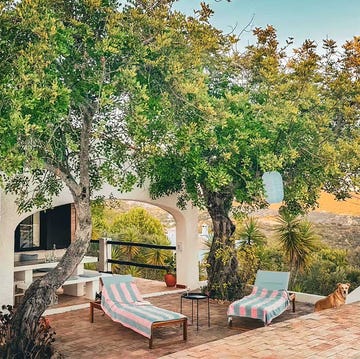Astrotourism is one of this year’s biggest travel trends, as more of us seek out unpolluted skies for a better view of the stars. Also called noctourism, our fascination with the universe and our place in it is fuelling a boom in stargazing breaks say Booking.com and Skyscanner, as is a renewed interest in astrology.
The good news is that, despite an estimated 80% of the world being impacted by light pollution, you don’t have to travel far or even get on a plane to enjoy a celestial escape. Wales has been named as one of the best destinations in the world to go stargazing, with the highest percentage of land under Dark Skies protection globally.
There are three protected International Dark Sky Places in the country, including the Bannau Brycheiniog (Brecon Beacons) National Park in South Wales, Eryri (Snowdonia) National Park in North Wales and the Elan Valley Estate in Mid Wales. One of the 16 most remote and dark places on earth is Ynys Enlli (Bardsey Island), two miles from the tip of the dramatic Llŷn Peninsula, and the first site in Europe to be awarded International Dark Sky Sanctuary certification.
What to read next
Although you can stargaze in Wales all year round, the darker nights of winter are best if you want to see our own galaxy, the Milky Way, as well as the International Space Station and some 8,000 other satellites currently orbiting the Earth. Time your visit with a meteor shower to see as many as 150 shooting stars an hour – actually just dust from comets or celestial debris. And if the geomagnetic conditions are right, you may be able to see the northern lights dance across the skies, too.
Kids will love hearing how The Spaceguard Centre, just outside Knighton, constantly scans the night sky for ‘Near Earth Objects’ that could, if they collide with us, pose a threat to our entire planet. There are also twice-yearly AstroCamps at Cwmdu in the Breacon Beacons where, from 26-19 April and 20-23 September, you can join other stargazers for workshops and talks and take a peek through the many powerful telescopes set up by visiting astronomers.
This year Wales is encouraging tourists to ‘feel the hwyl’, which means to experience being in the moment, and you’ll certainly get a sense of that looking up at the stars as they twinkle in the night sky.
For more information and to find celestial places to stay, see Visit Wales













